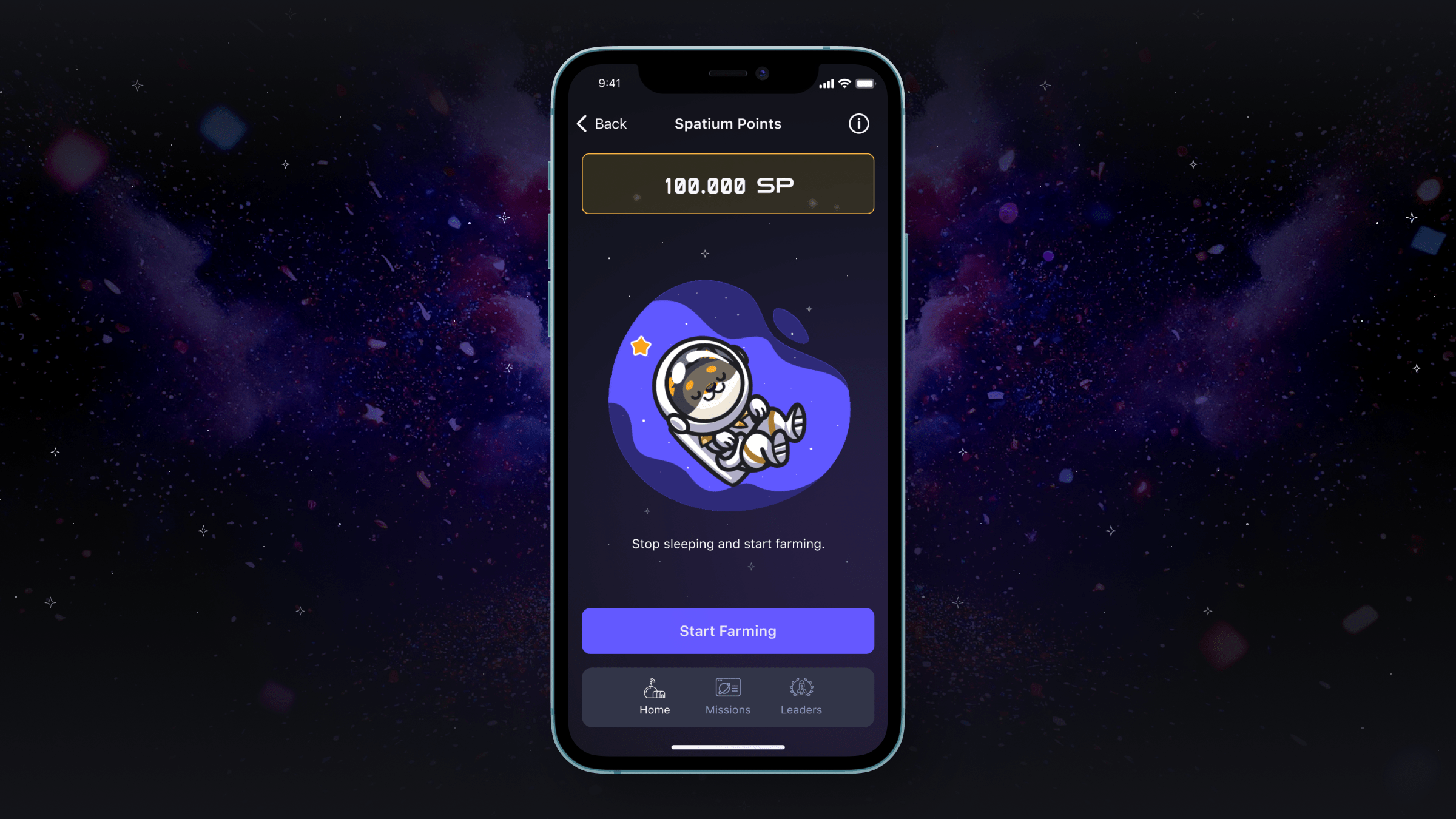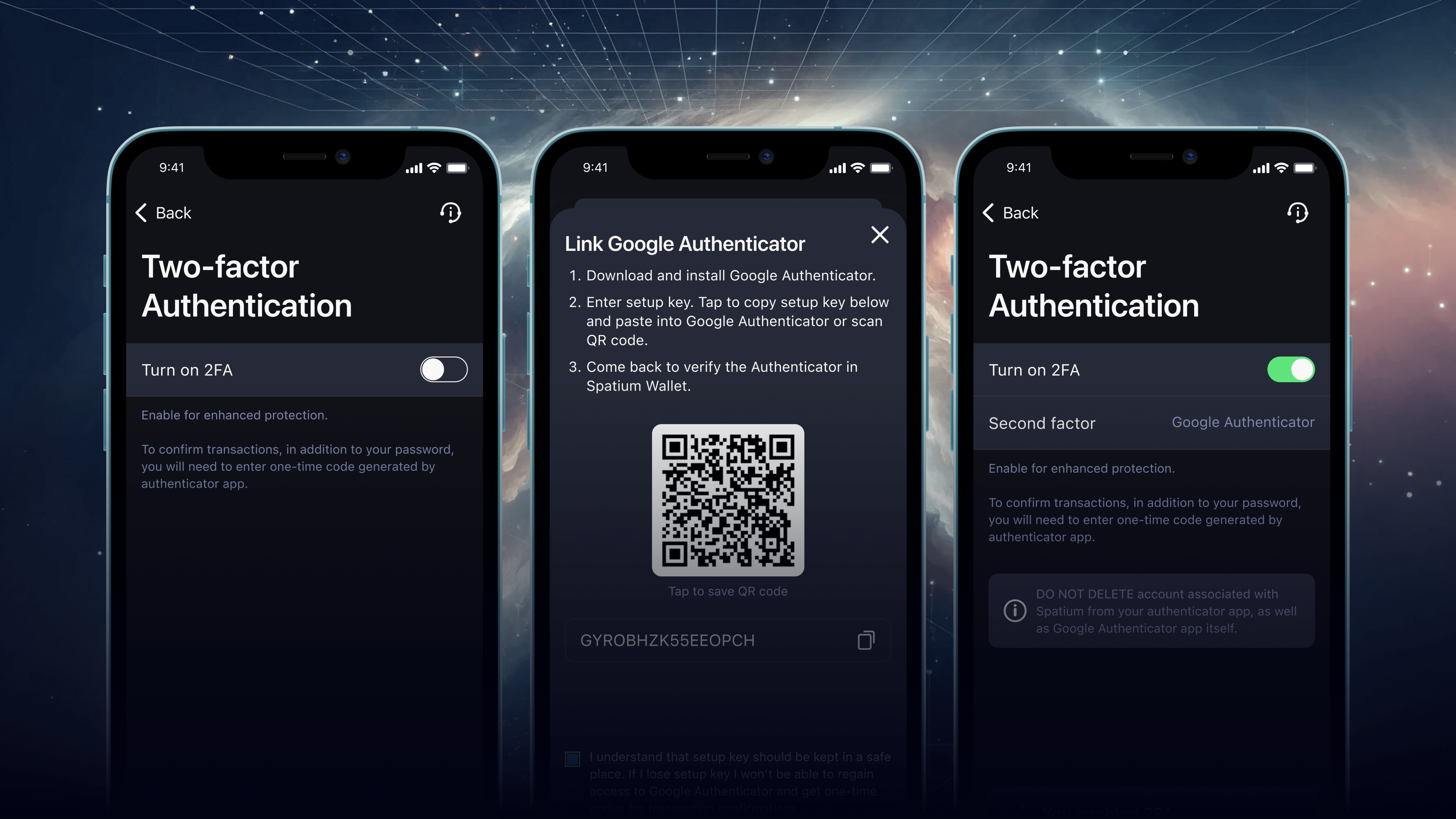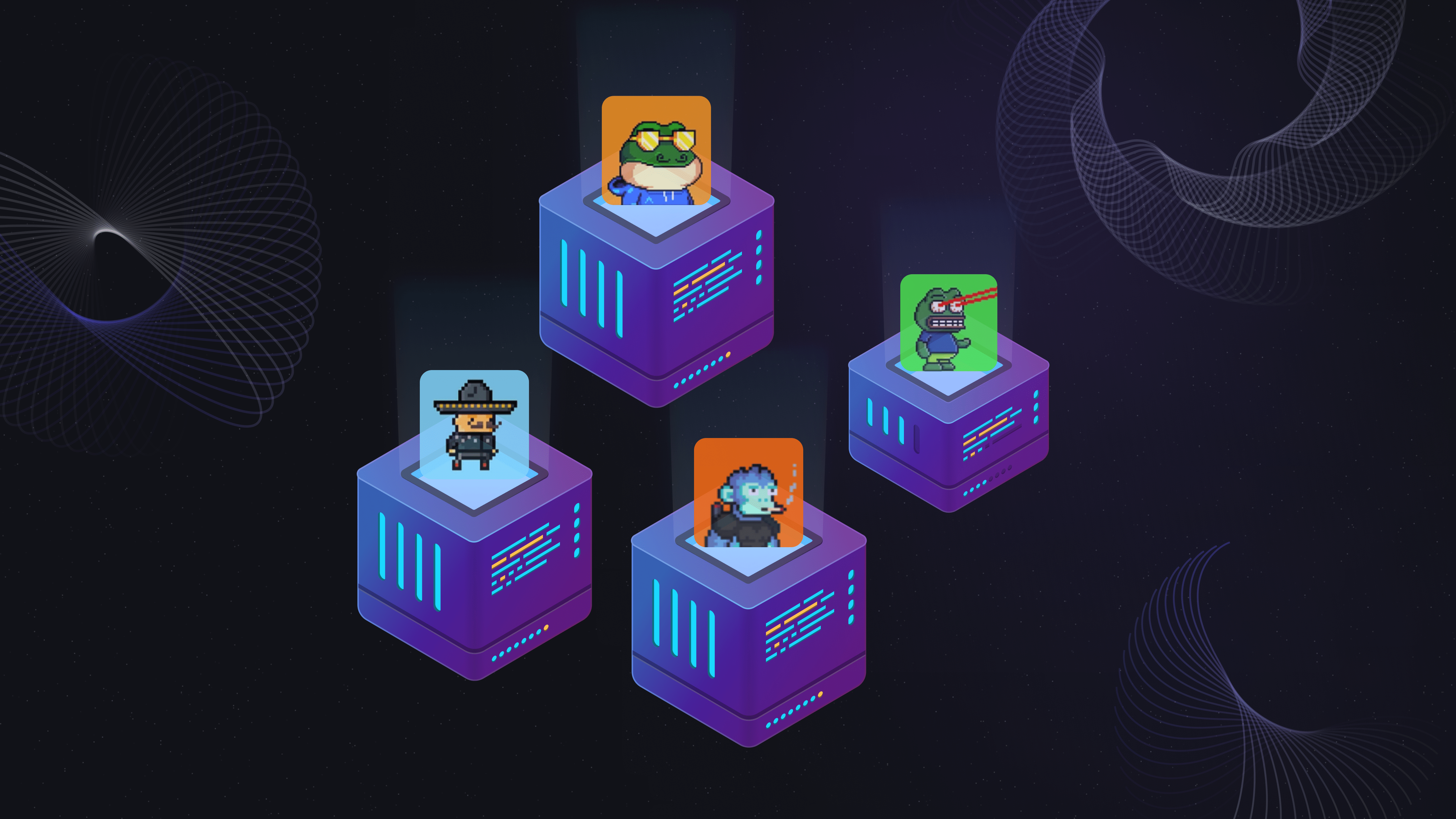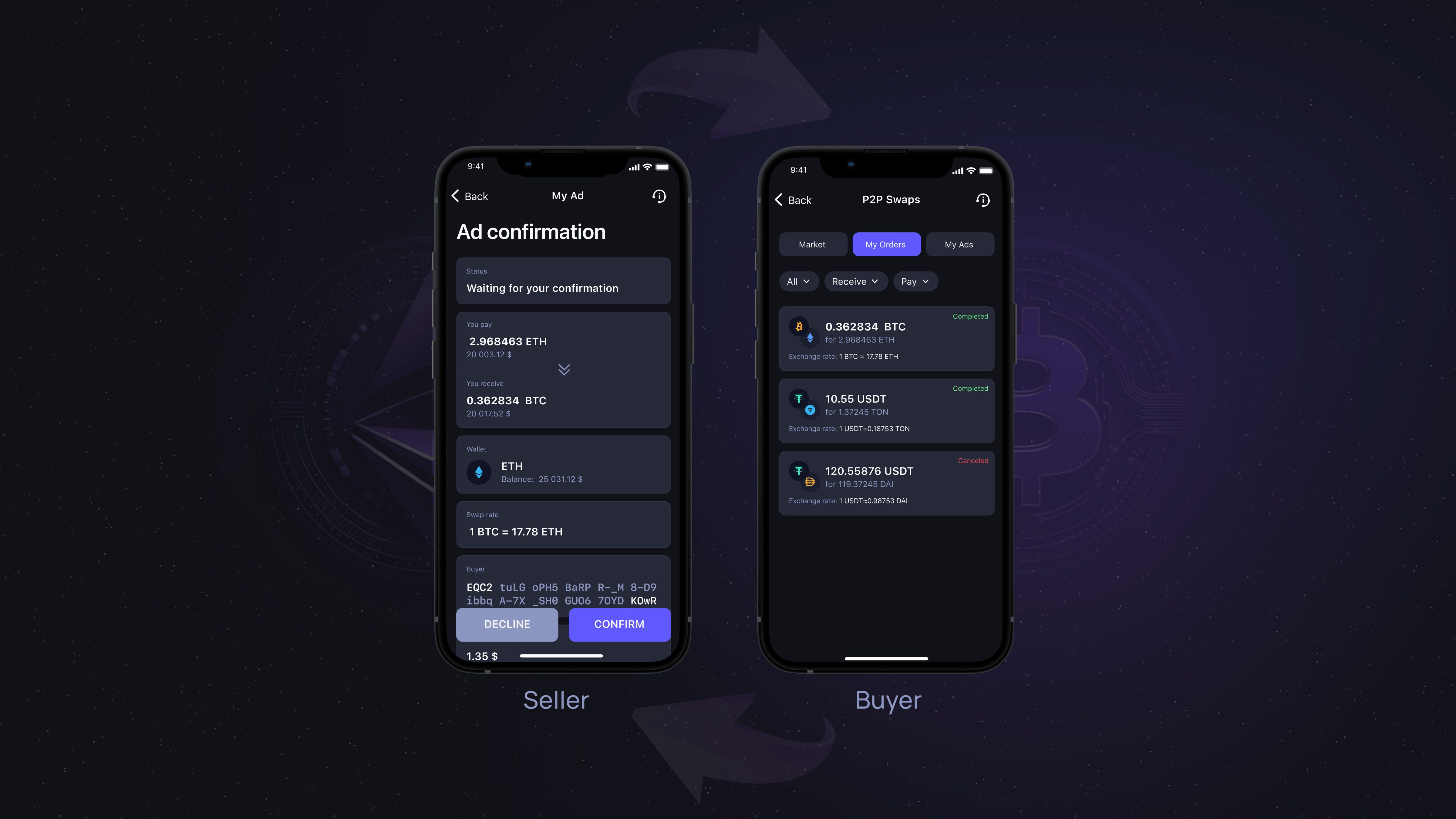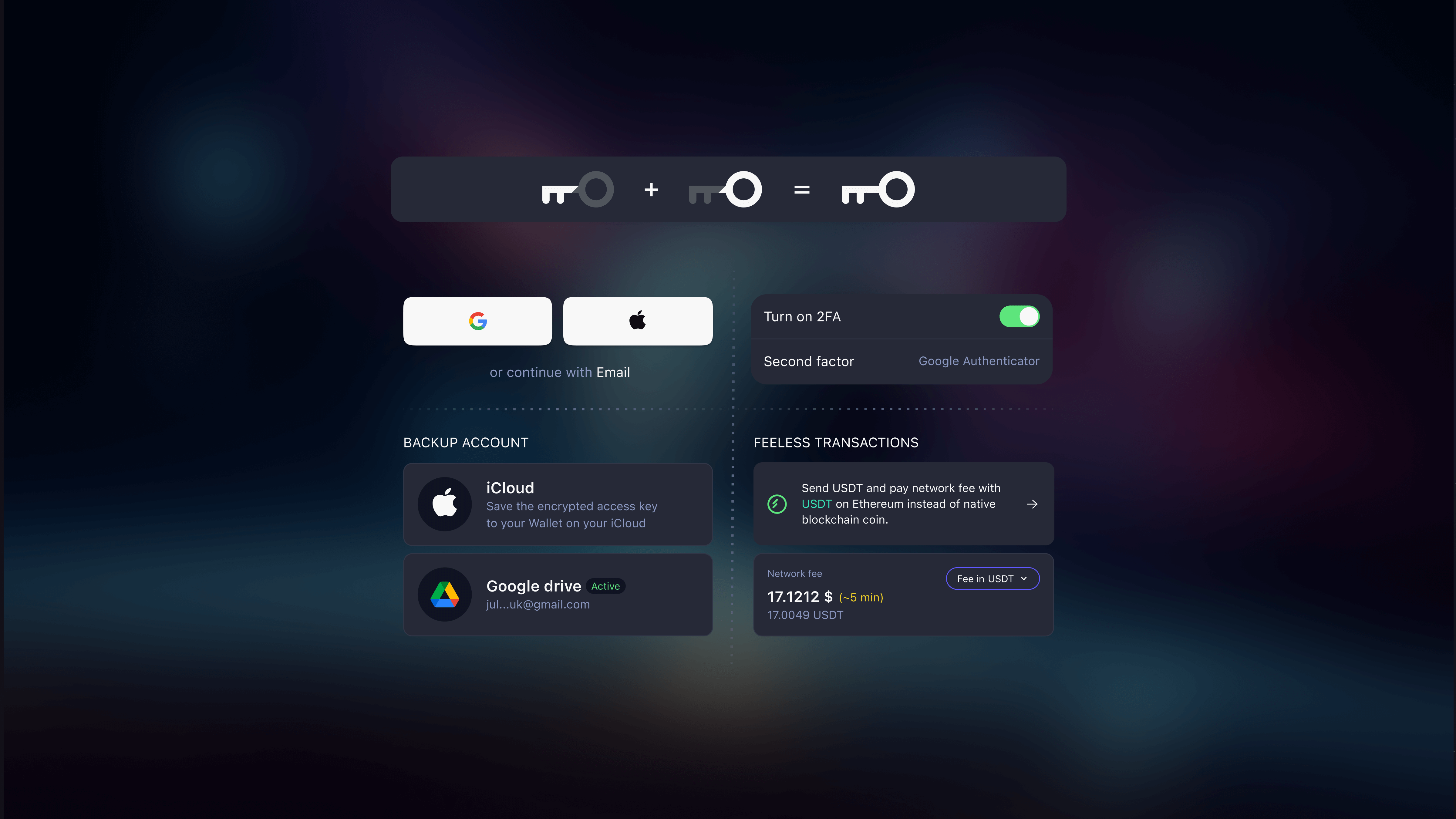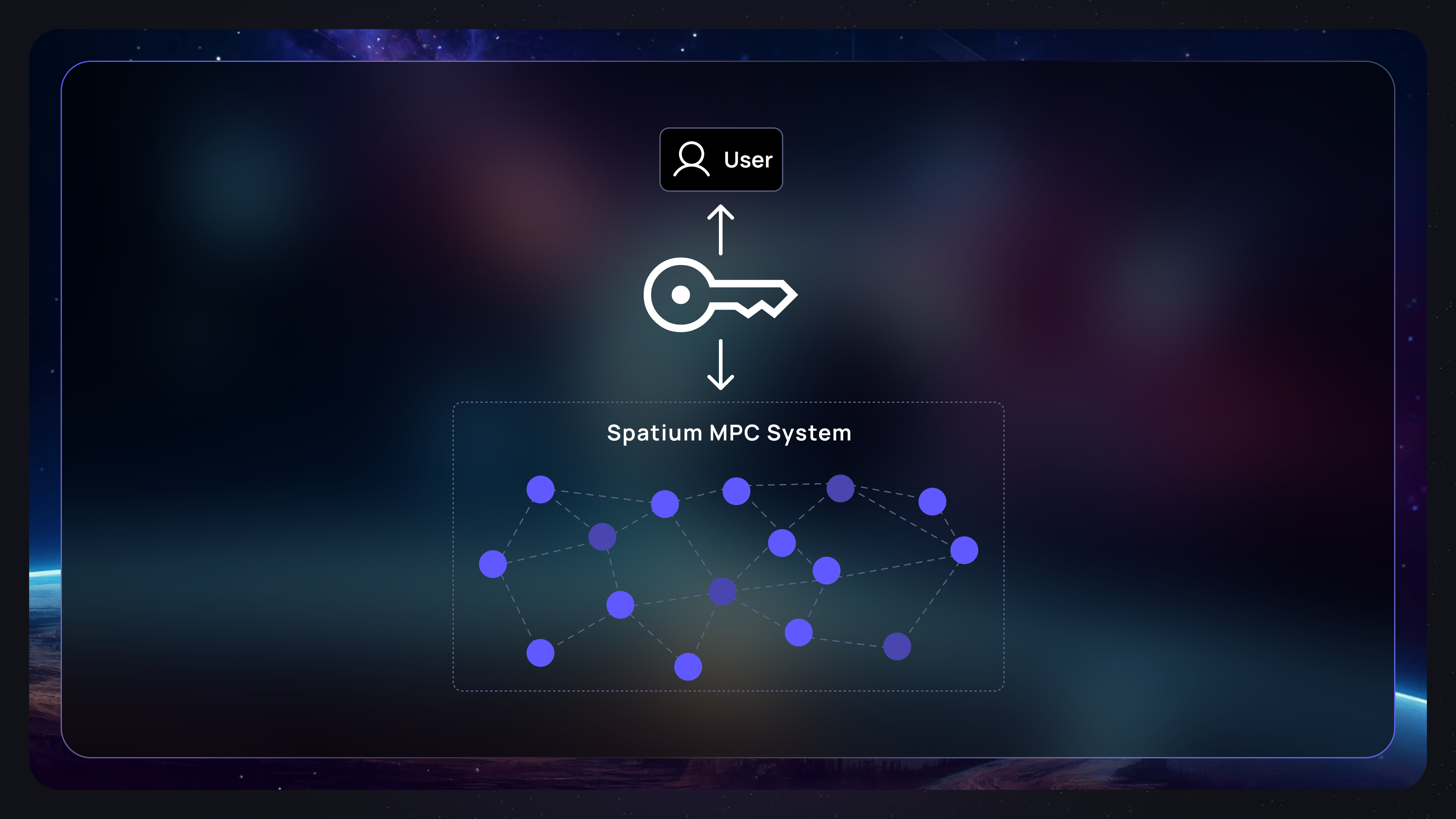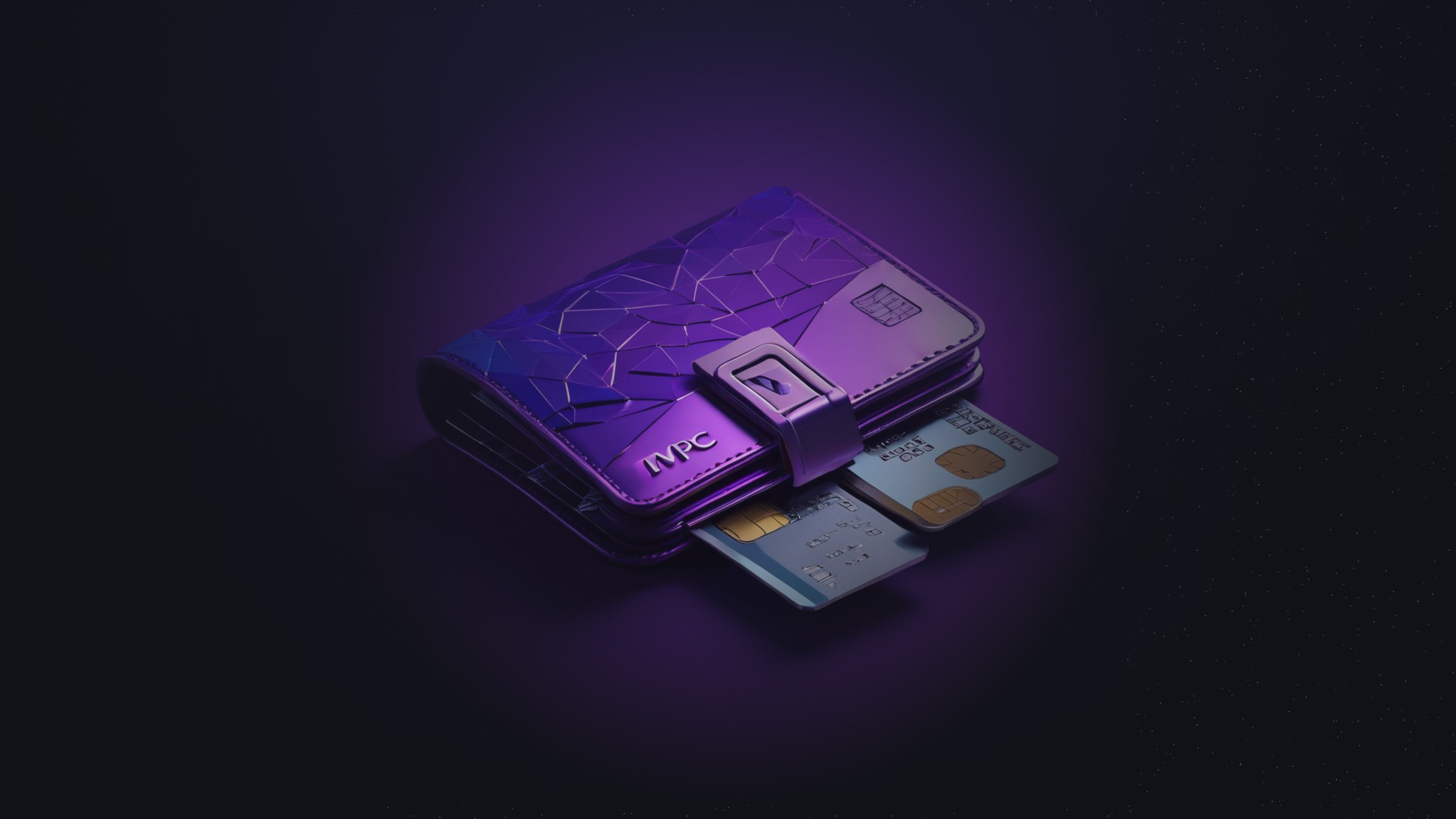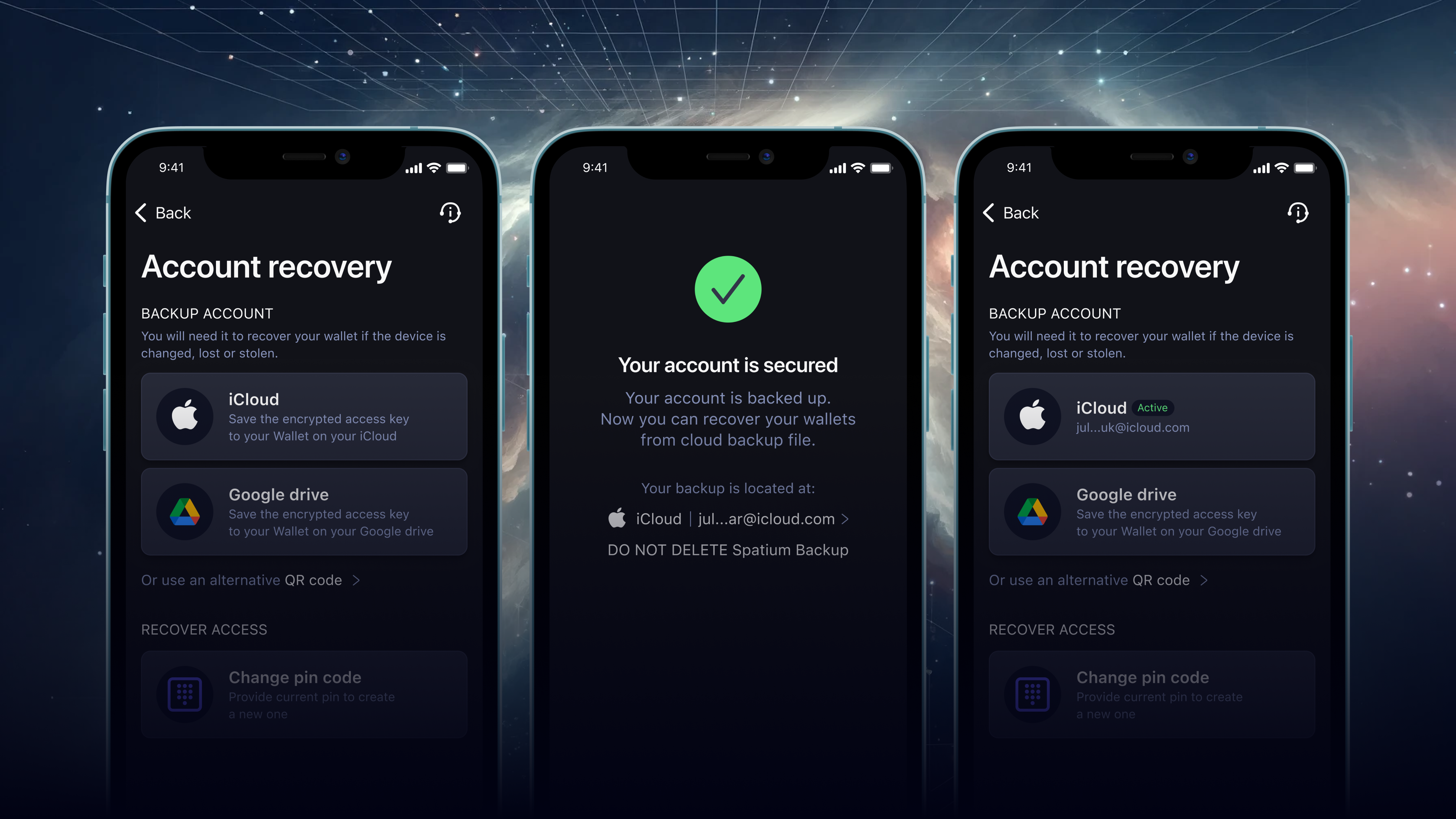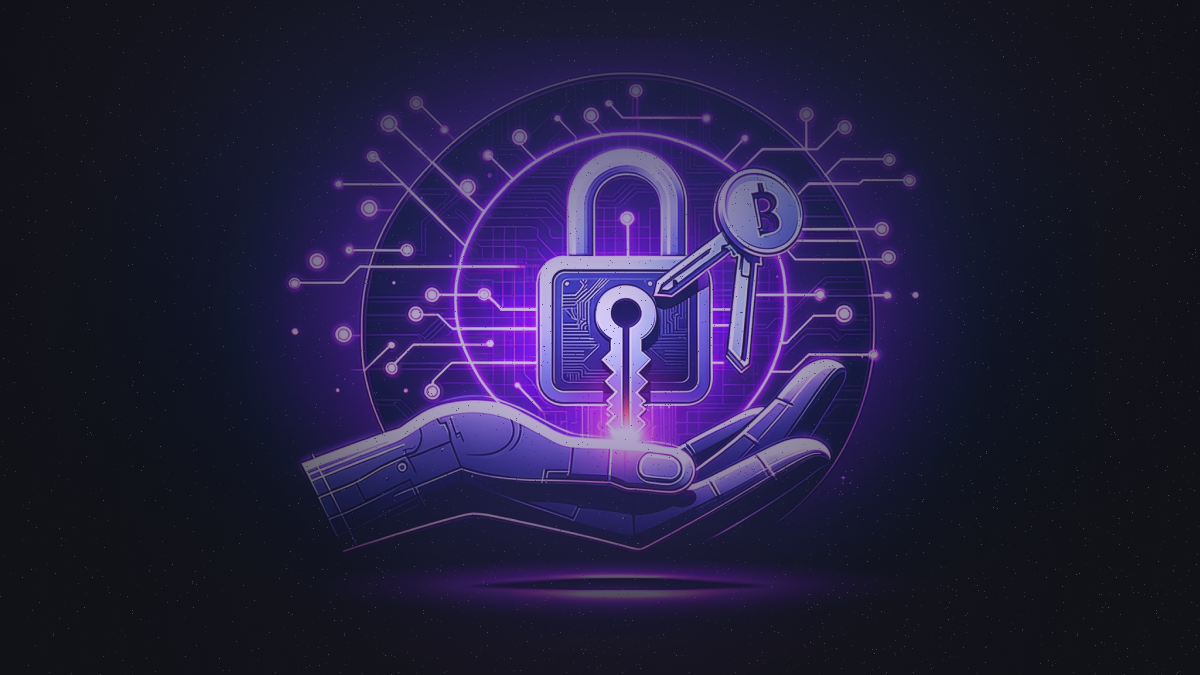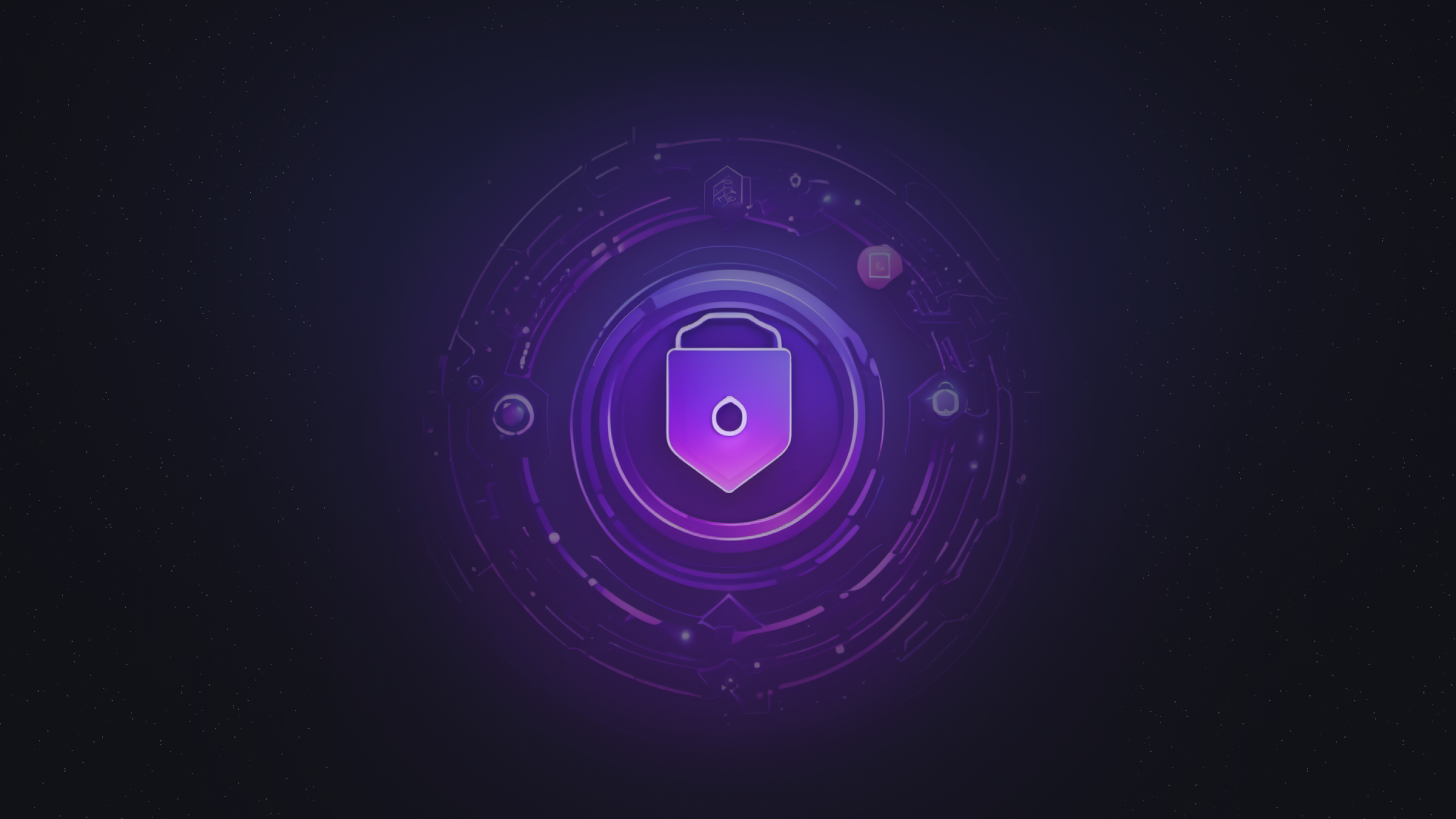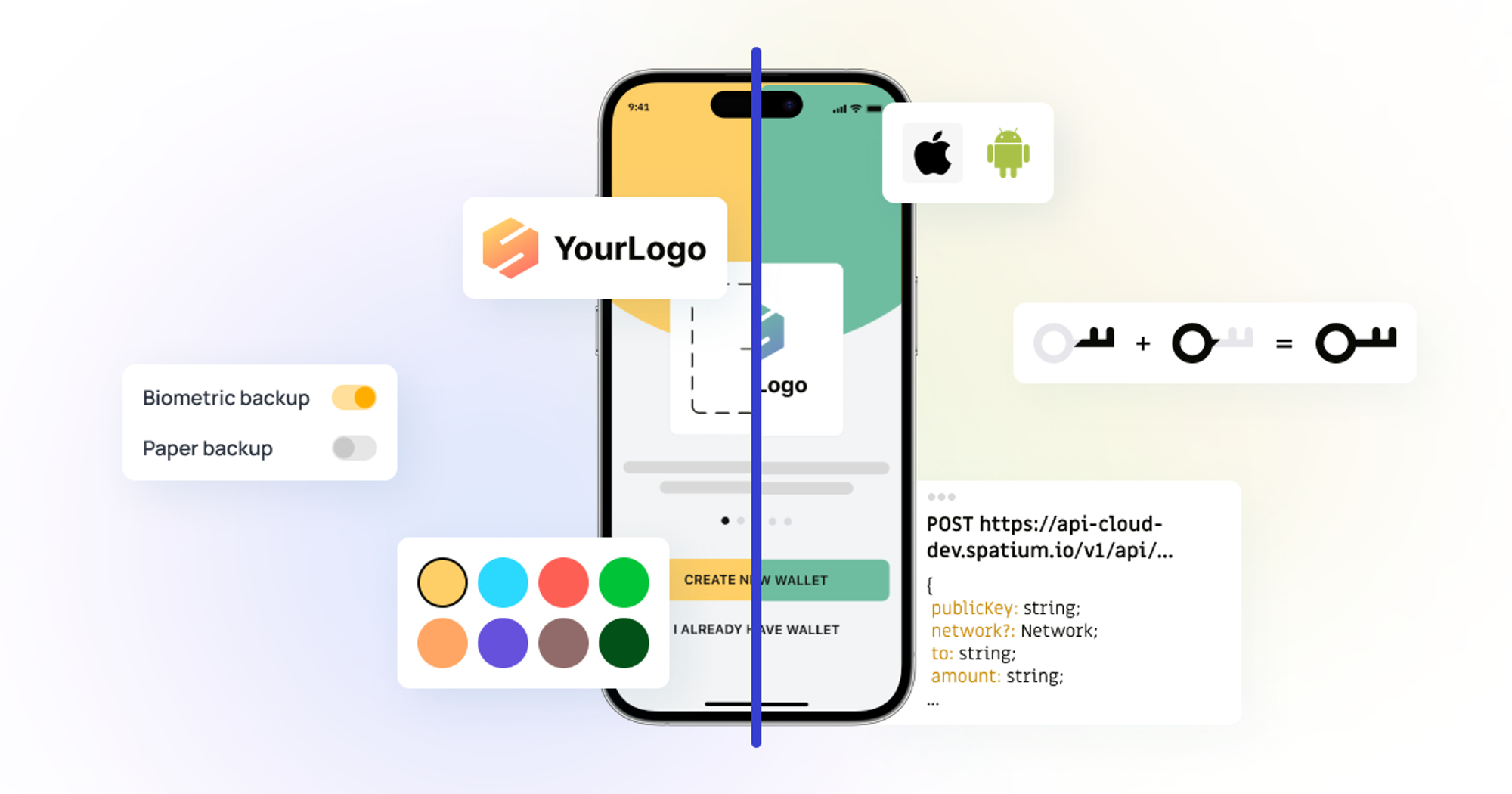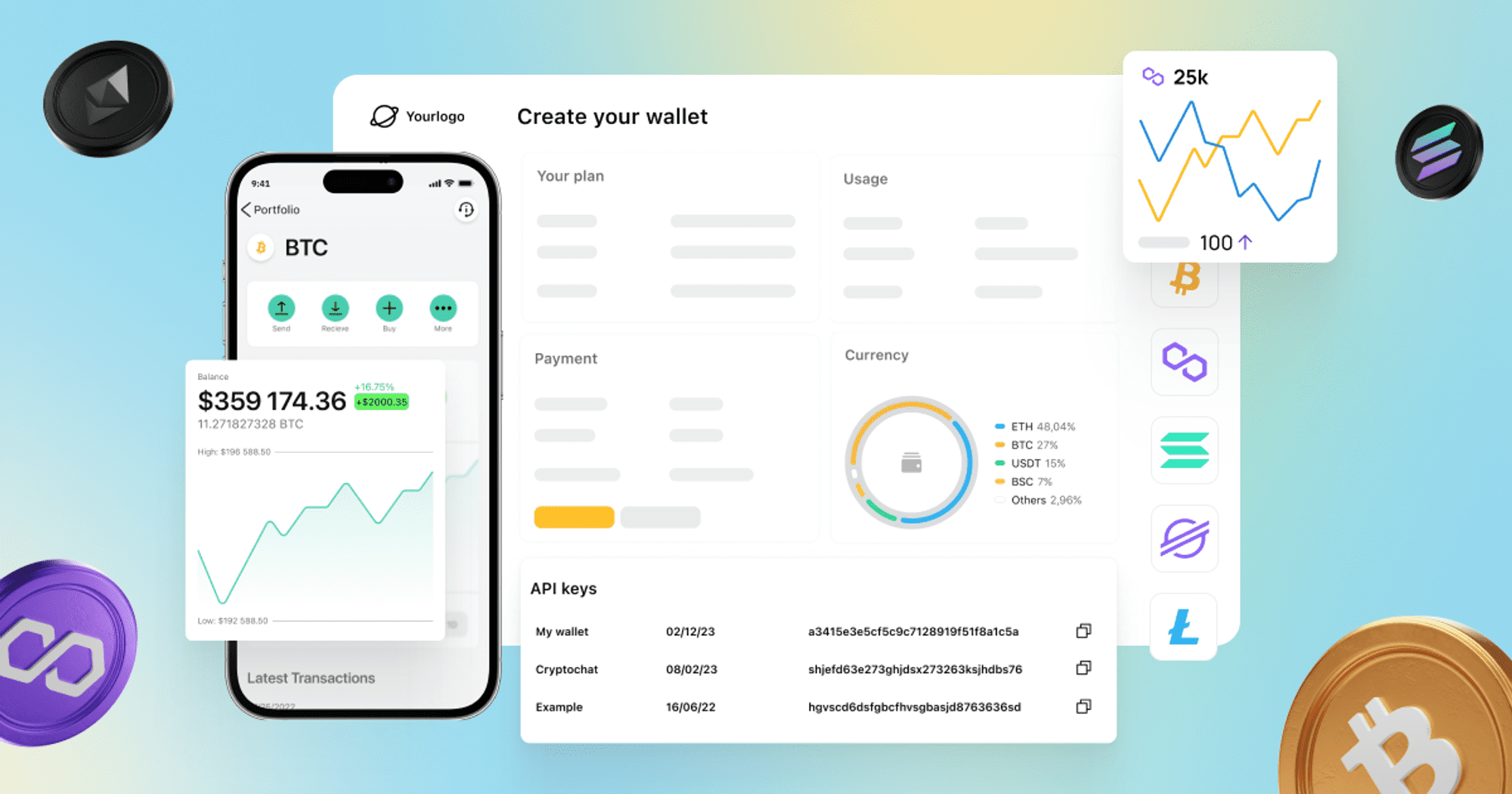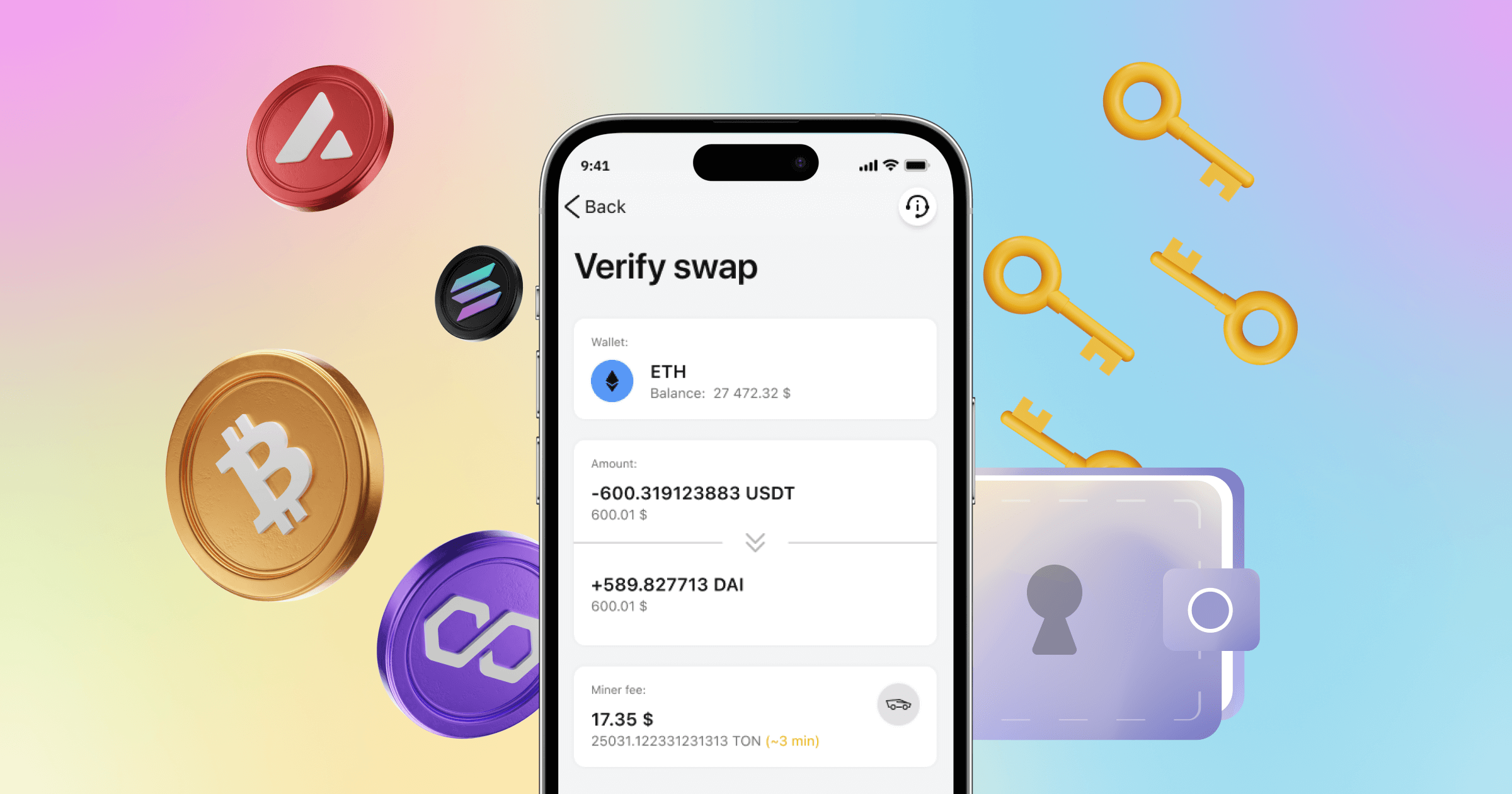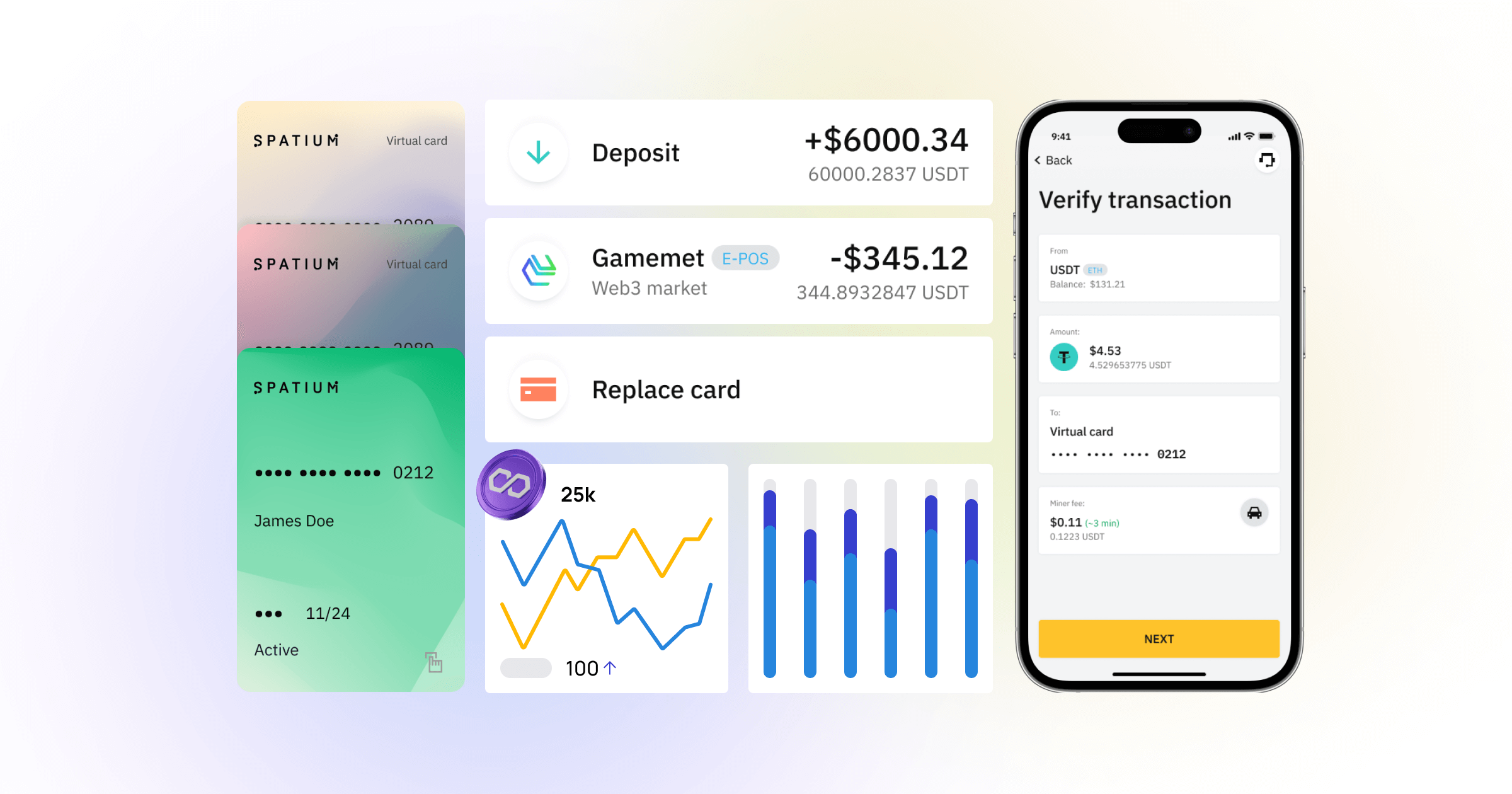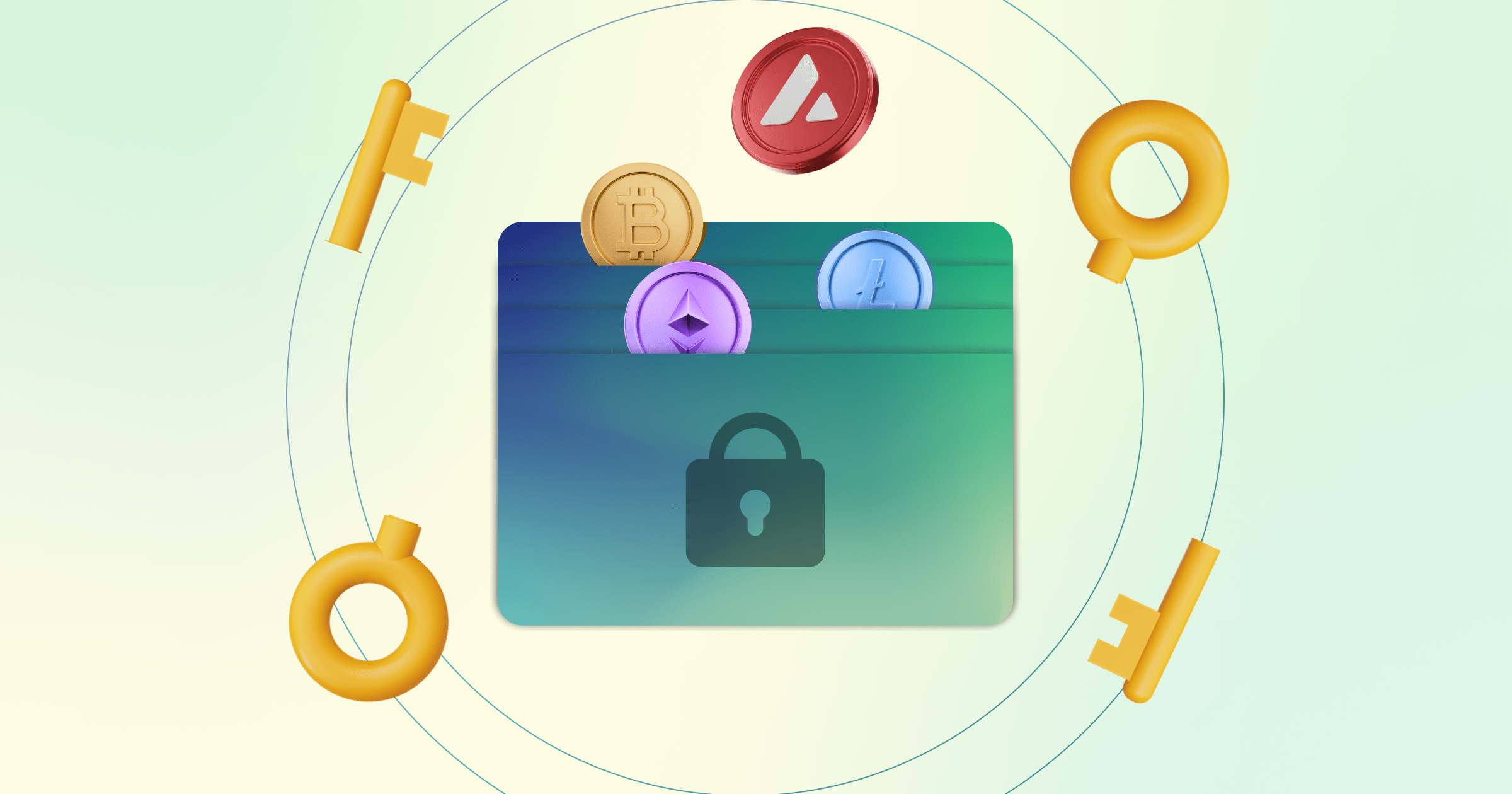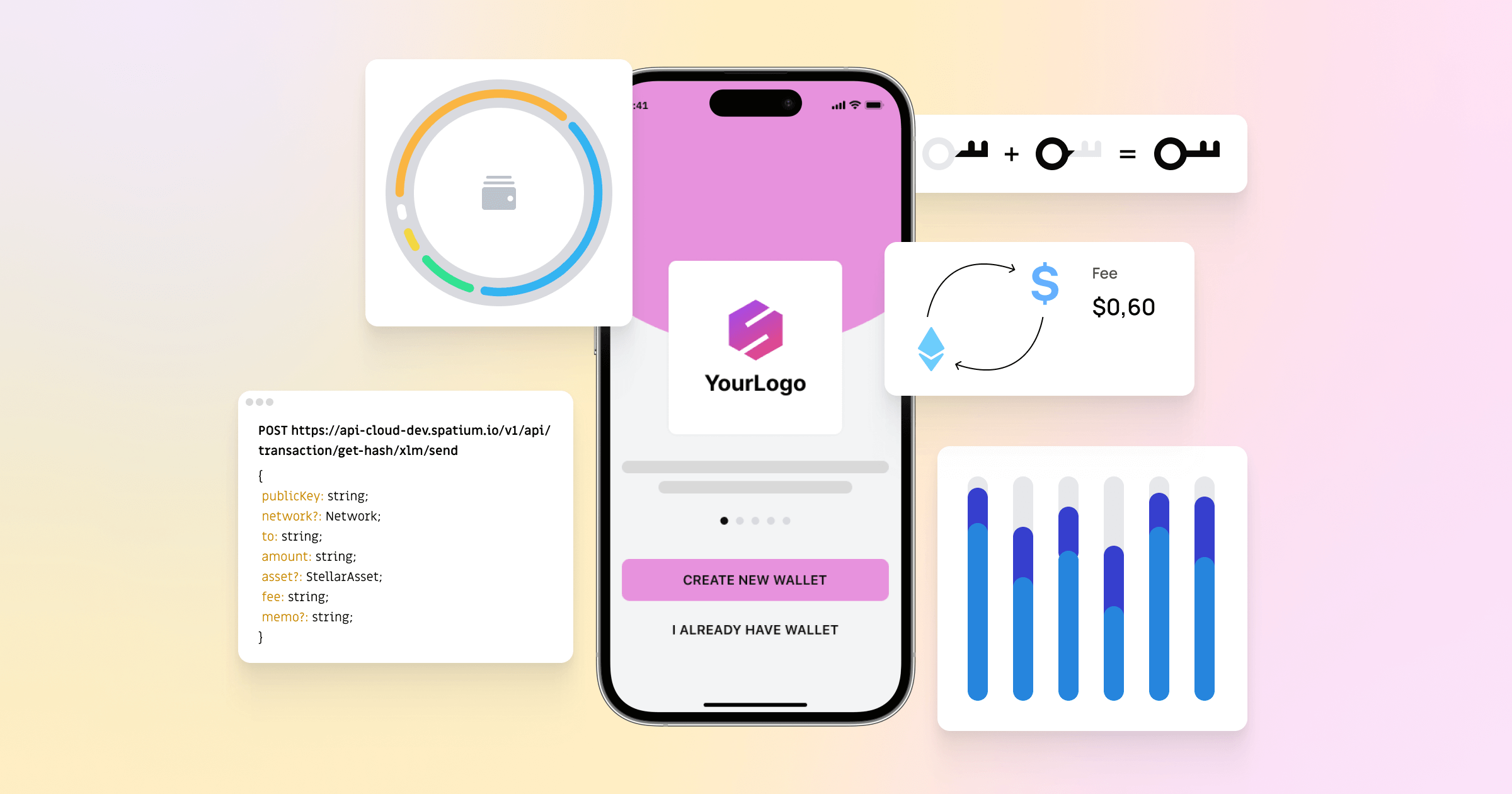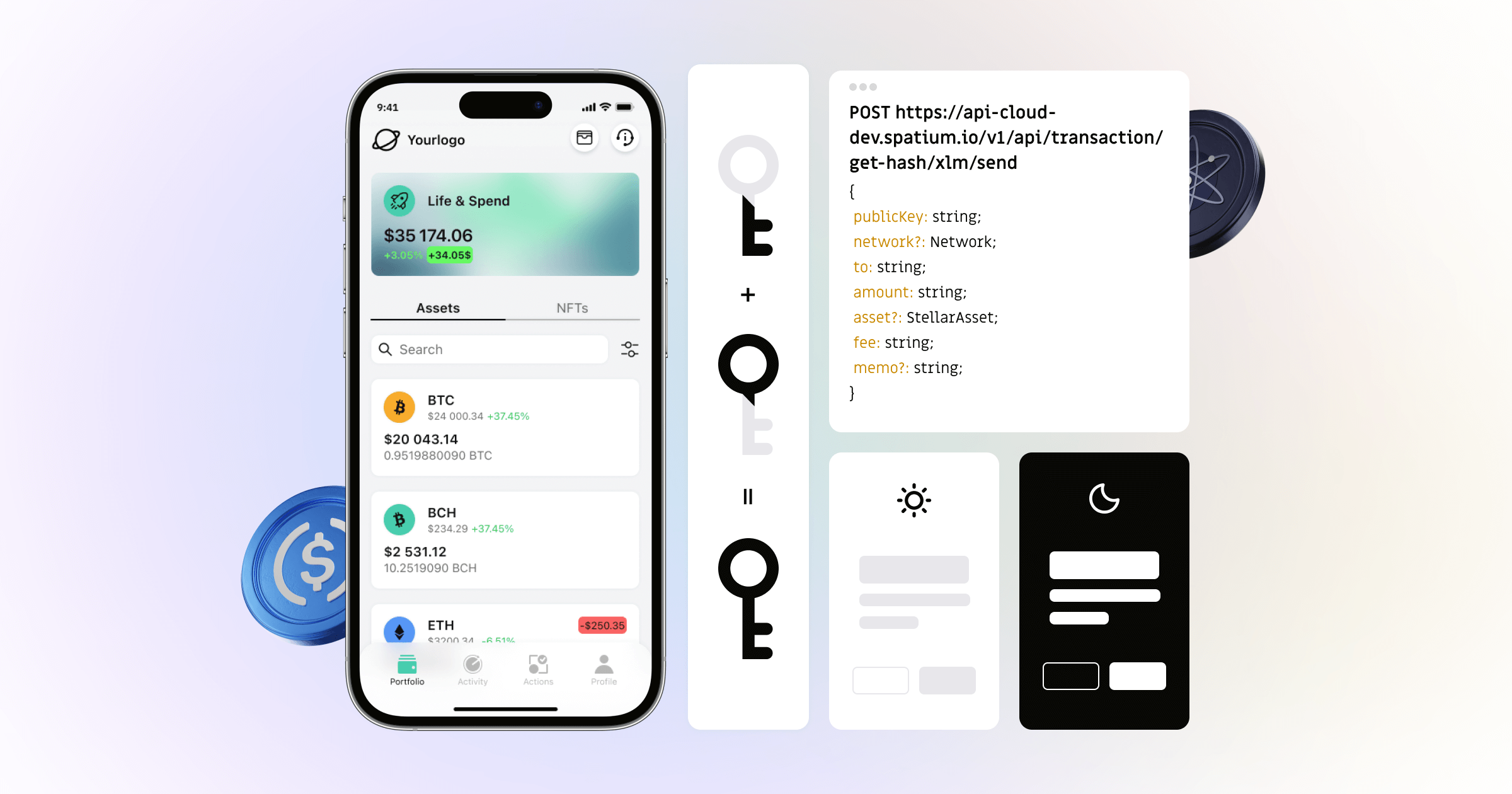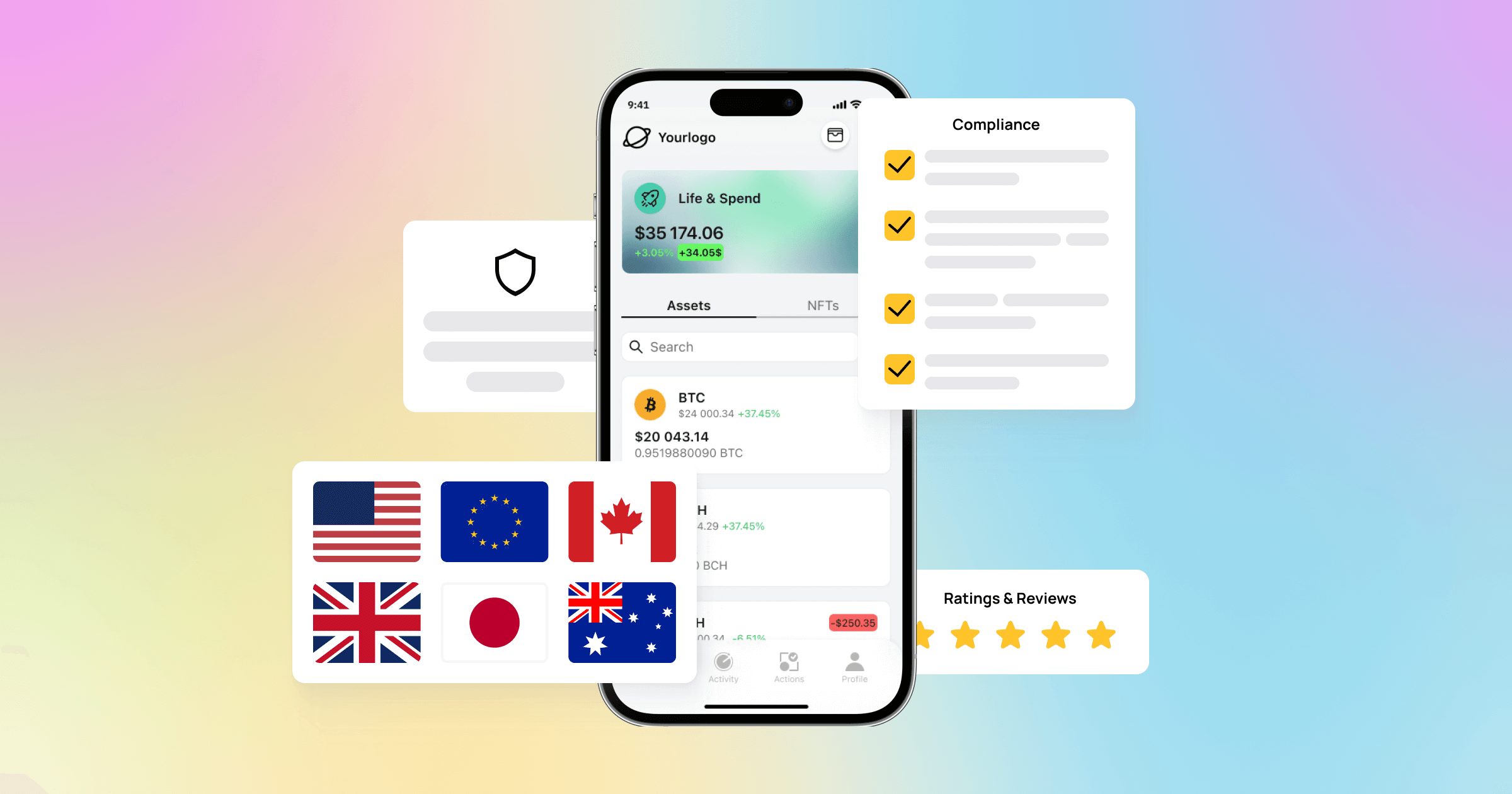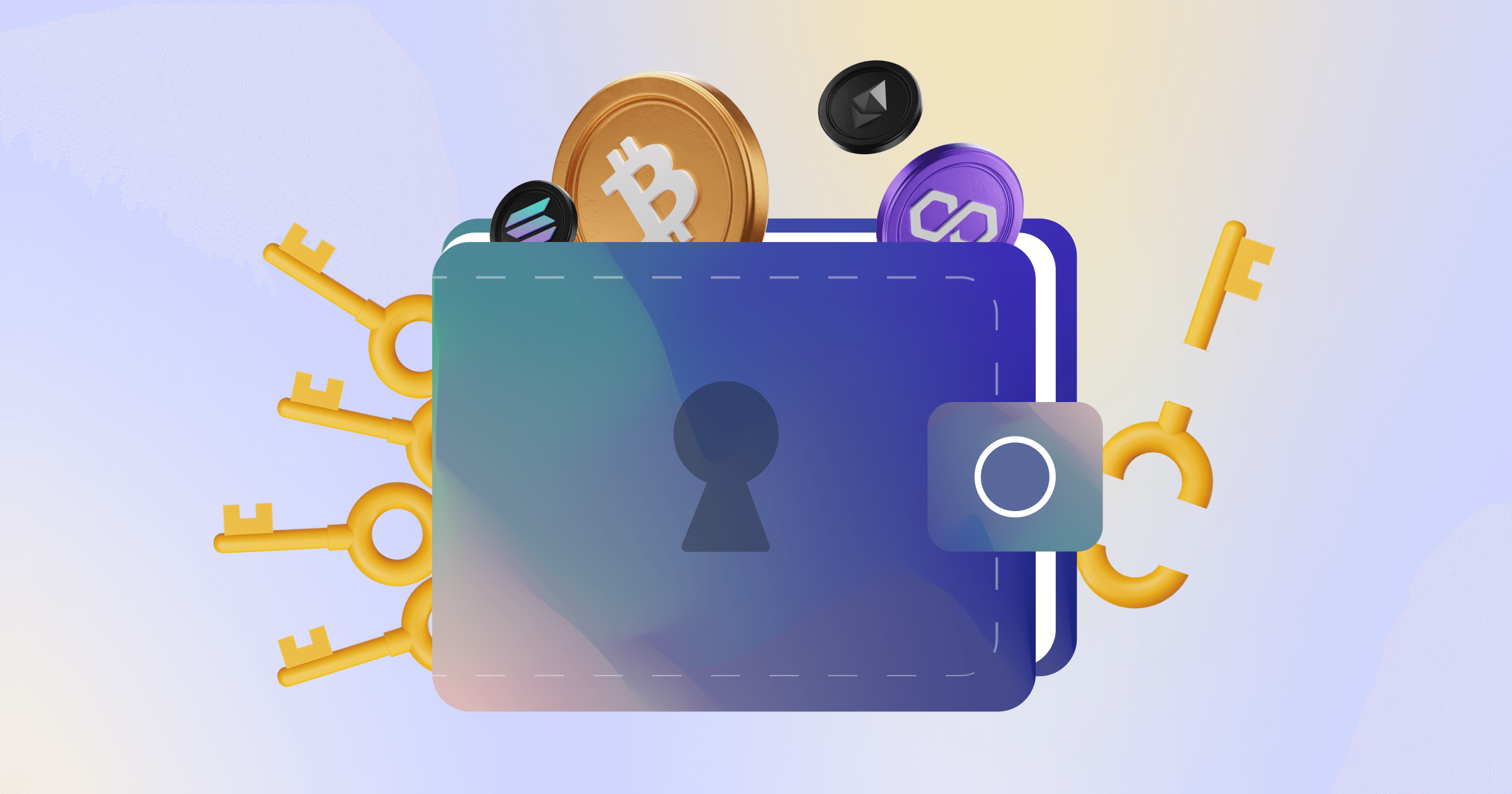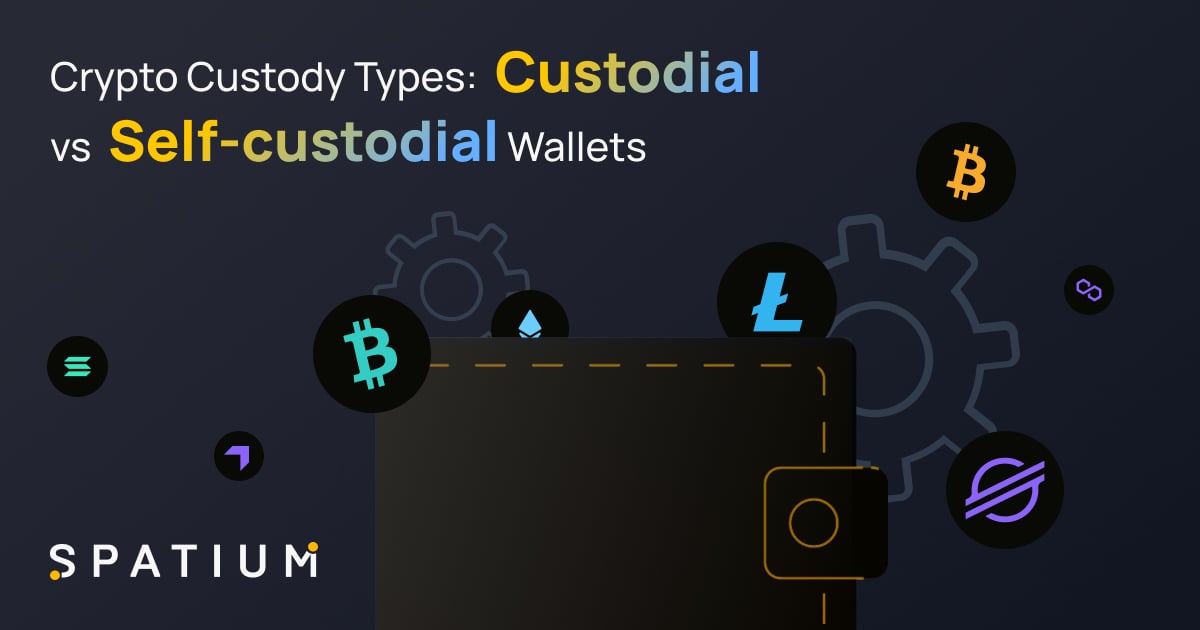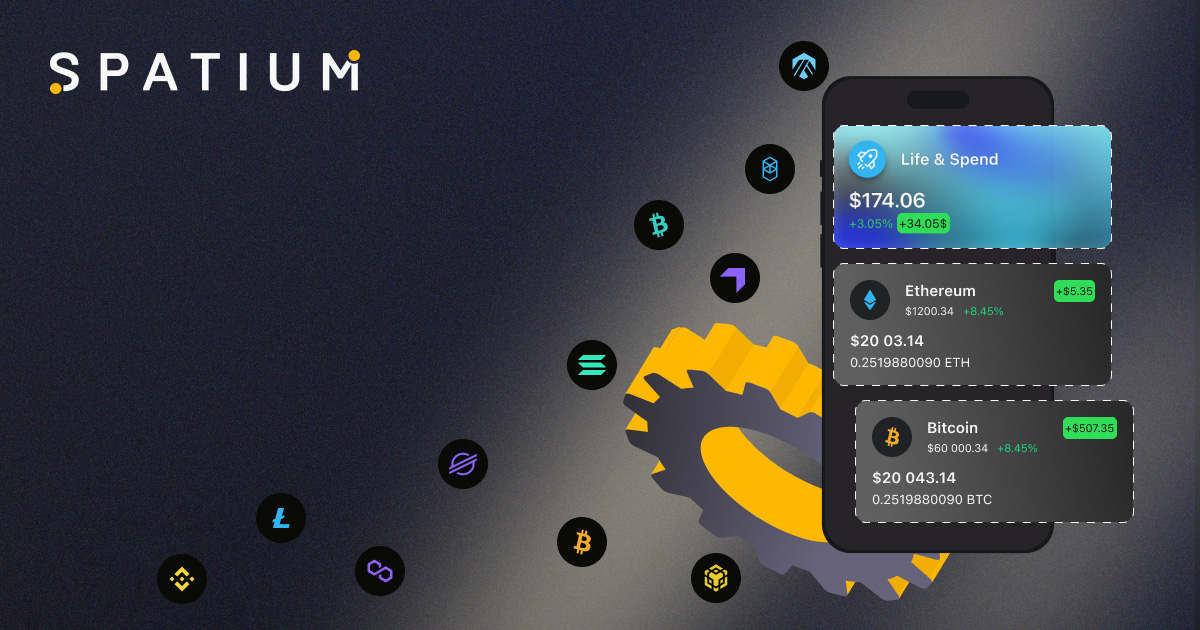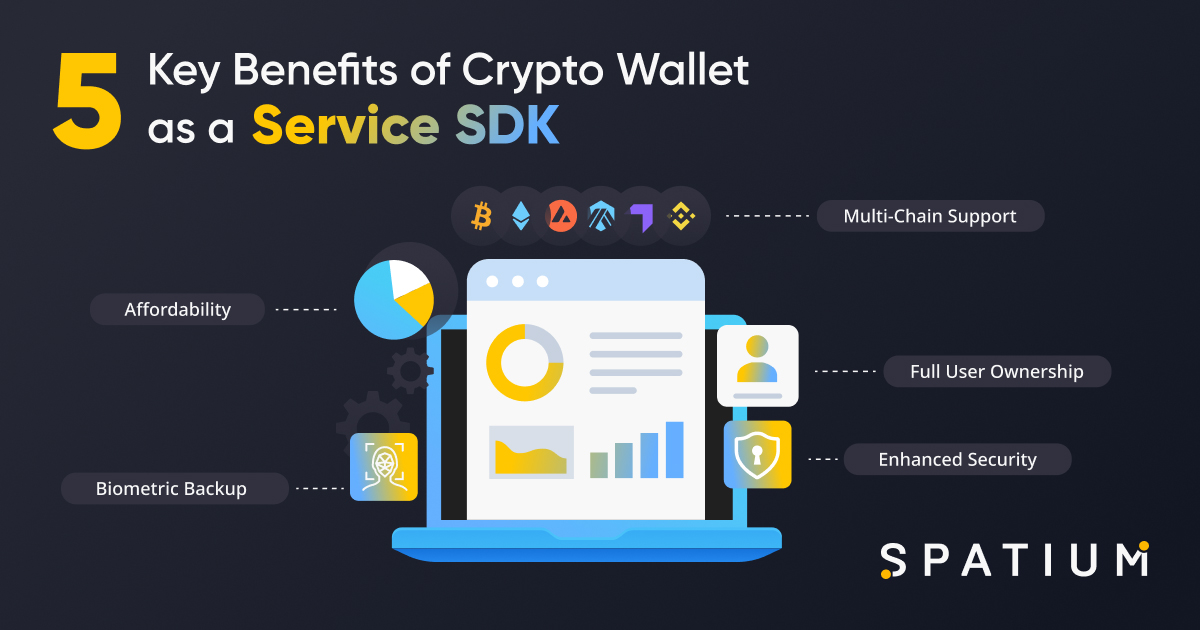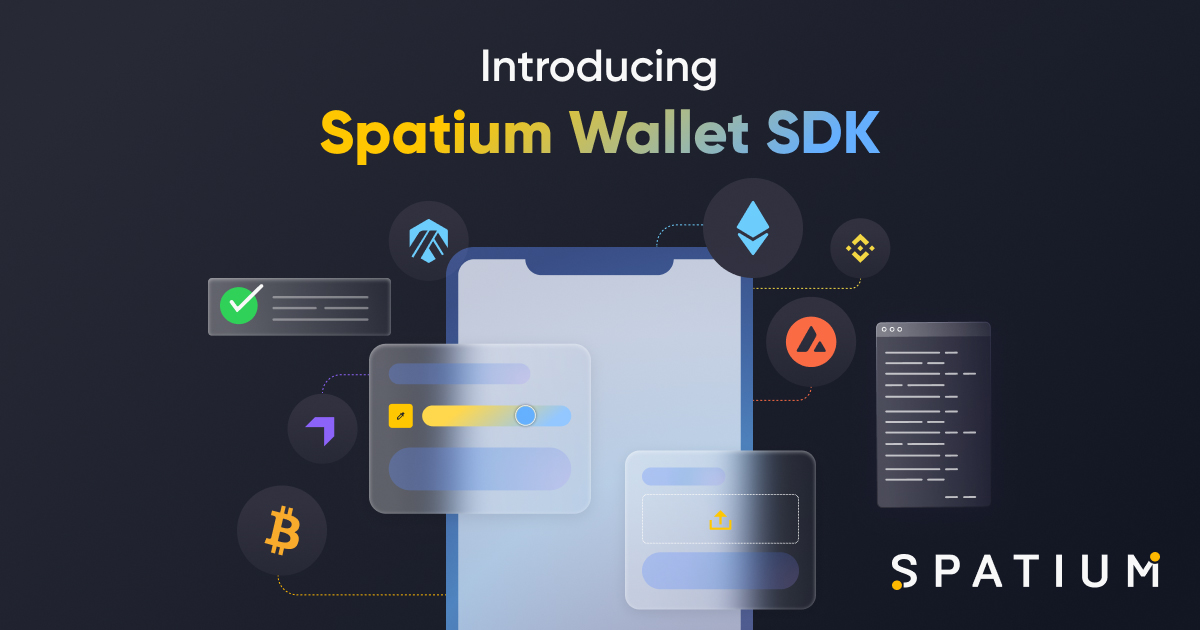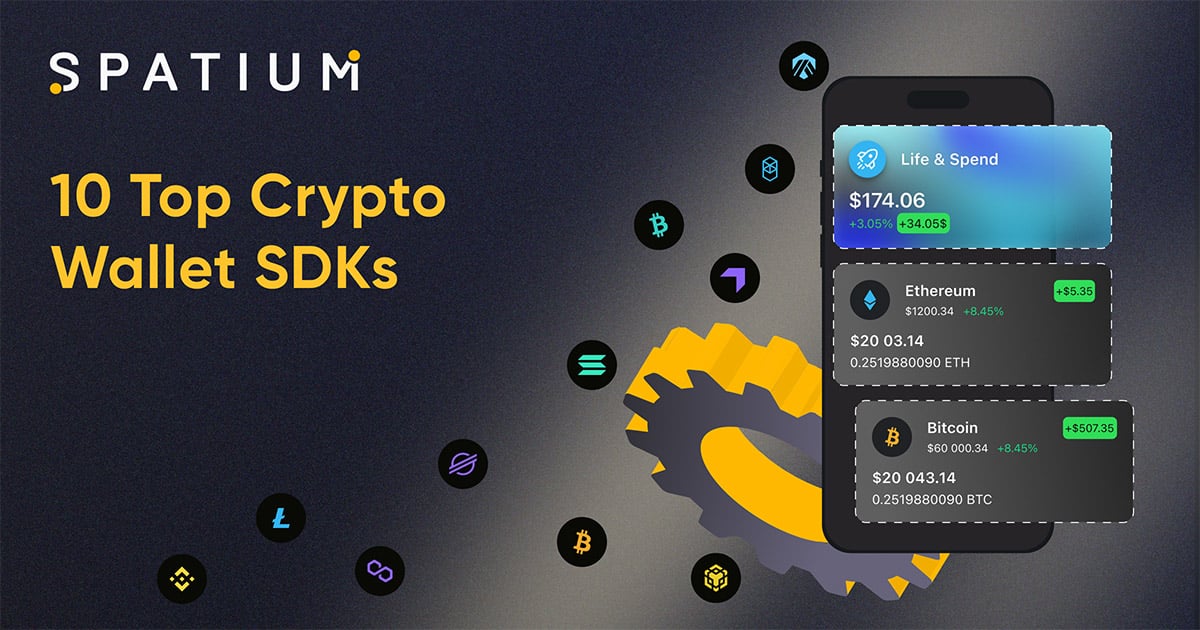Share this
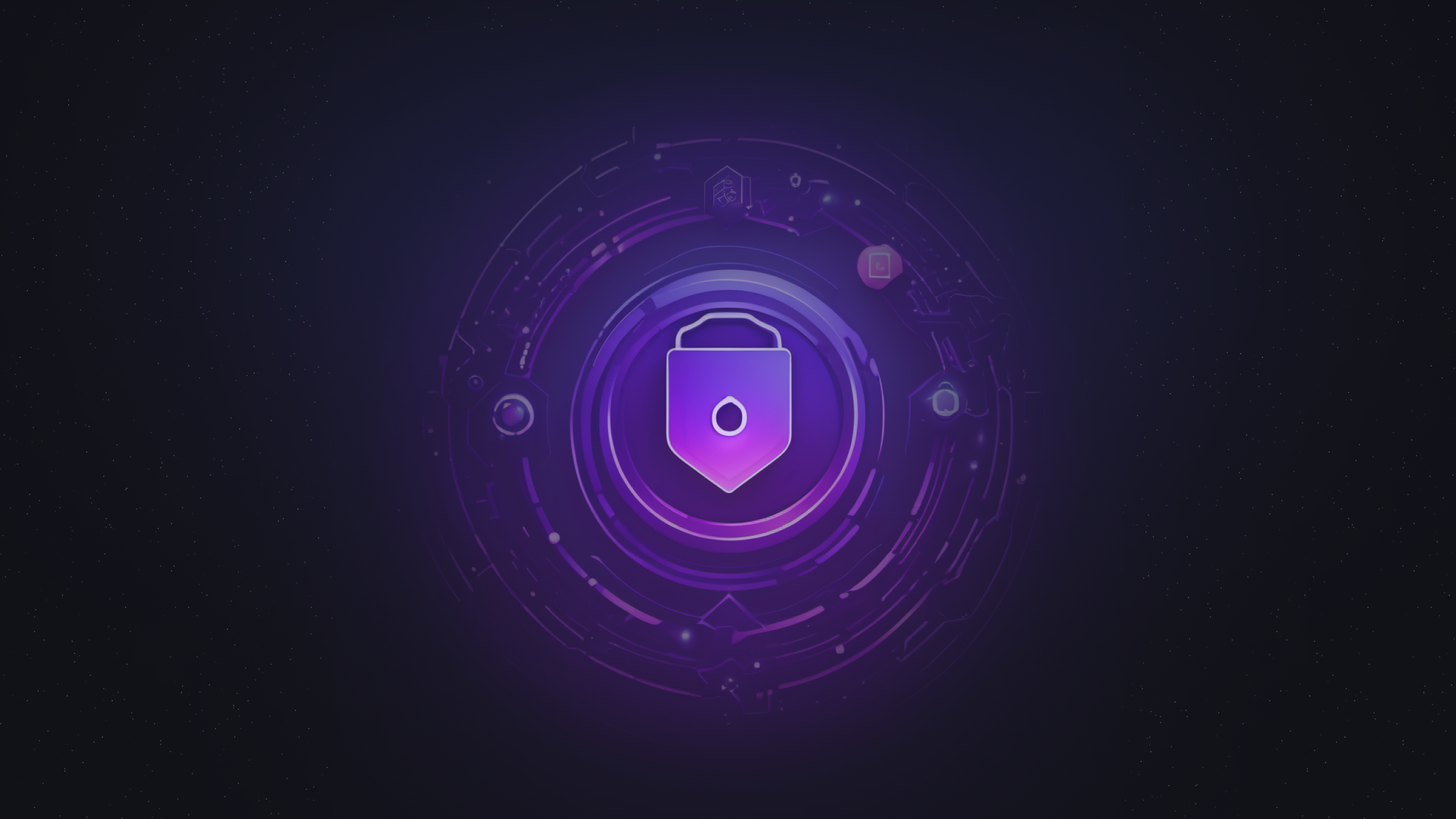
To use and trade cryptocurrencies you need a crypto wallet. It’s a special software that allows you to check your balance, send or receive crypto. At first glance, crypto wallets look similar to traditional banking or payment apps. But they work in a completely different way.
We would like to discuss several important points in this guide:
- Why do people use crypto wallets?
- How do crypto wallets work?
- What are public and private keys?
Why Do You Need a Crypto Wallet?
Right now, a crypto wallet is the only means to interact with blockchain networks. Similar to the way banking apps don’t store any of your money (banks do), crypto wallets also don’t store any of your digital assets. By digital assets, we mean cryptocurrencies or tokens.
For example, if you have 10 Bitcoins and you would like to send 1 Bitcoin to your friend or relative, you do this within the wallet, but in reality, you transfer the ownership over this digital asset to the other person. So there is no third party involved.
Crypto wallets exist in various forms and shapes. Some of them come as an app on the phone, some act as a program on your computer or a service where you can log in and get access to the web3.
How Do Crypto Wallets Work?
To get an understanding of how crypto wallets operate, we have to talk about cryptography and encryption techniques. Imagine what might happen if, in a zero-trust environment, which is web3, anyone can access your private information regarding transactions. For some ill-minded people with technically advanced skills, it’s a red flag in front of a furious ox. They will try to hack your wallet and steal your funds.
That’s why all activities on the blockchain are encrypted by default, including crypto wallet operations, private and public keys. Encryption in simple words is a secret code used to protect users’ communications and information.
Web3 is almost a war zone, as it applies high-level cryptography, or encryption similar to one used in the military. It is based on advanced mathematical equations, and it’s quite common that a crypto wallet uses more than one encryption technique. Cryptography is used to sign, send, and receive transactions.
Basic Crypto Wallet Activities:
-
Showing your crypto balance
It means that your crypto wallet has access to any computer around the globe that stores a blockchain with your assets. Luckily for you, web3 doesn’t have a single point of failure and as long as there is at least one working computer with the blockchain database stored on it, you will have access to your digital assets.
-
Building a transaction
Before making a transaction you have to construct it and provide all the essential parameters. These are the amount of funds to be sent and the destination (another person's wallet or your wallet on a different blockchain).
-
Signing a transaction
This is the step when your crypto wallet starts actively using encryption. A transaction requires a cryptographic signature to safely send it to the blockchain.
-
Sending a transaction to the blockchain
This is the stage when a crypto wallet finally sends a transaction to validators. These are special people, miners who are responsible for the verification of all transactions sent to the blockchain and updating the ledger (blockchain) balance.
Public Keys and Private Keys
For a crypto wallet to operate on blockchain it requires private and public keys.
Public key
The public key is your wallet’s blockchain address. It’s generated once when you set up your wallet and is given to anyone who wants to send you assets. Also, you have to know other people's blockchain addresses (public keys) to perform a transaction and send funds to their wallets.
Private key
The private key is generated together with the public key when you set up your wallet for the first time. But unlike the public key which is shared right and left, your private key cannot be shared with anyone!!! You have to keep it private and sign with it only trustworthy transactions.
Usually, a crypto wallet's private key is represented by random words (from min 12 to max 24), a seed phrase. At the same time, there are new types of wallets taking web3 by storm - MPC wallets and smart contact wallets that don’t require a seed phrase to operate.
Conclusion
There are several strong arguments for using crypto wallets and storing cryptocurrency there. One of them is that blockchain doesn’t have a single point of failure and in any emergency case you will still have your assets and get access to them.
One of the most convenient and safe crypto wallets is Spatium. Spatium crypto wallet app is available on iOS and Android.
Download it and and try Spatium Feeless Bitcoin Wallet and the feature allowing you to pay network fee in currency you send instead of native chain tokens (currently available for USDC on Ethereum. More chains and tokens will be added soon).
Share this
Subscribe by email
Related posts






